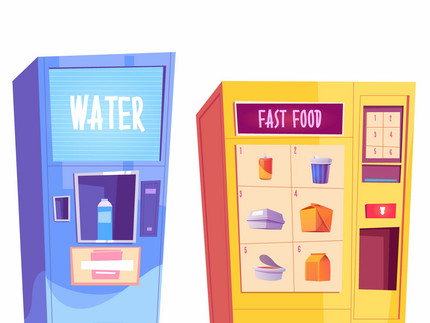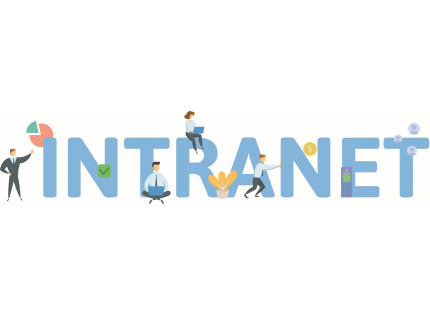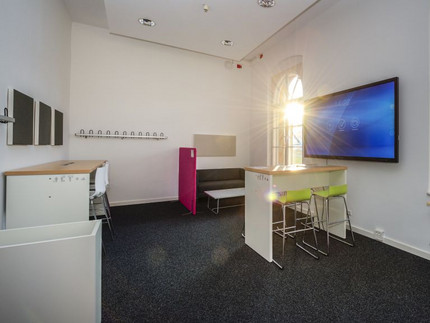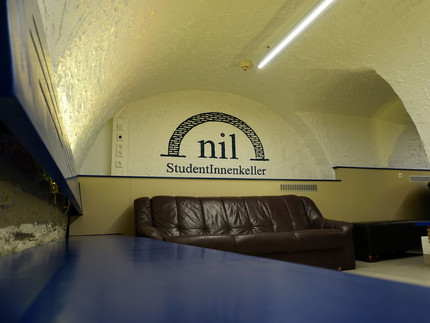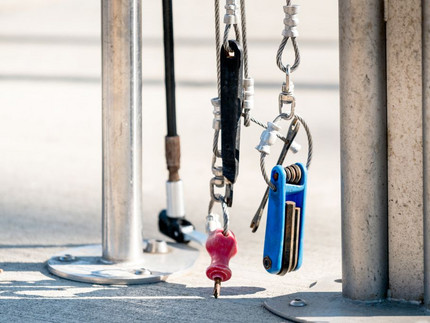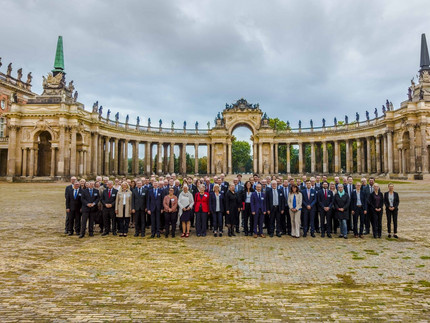Our Projects

As a central coordination office, we deal with strategic methods to professionally implement the project portfolio. The Division 6: Central Services is entrusted with comprehensive projects that affect several areas of the University of Potsdam.
Ongoing Projects
Digital/electronic human resources management: Student employees
As part of the University of Potsdam's digitization strategy, the digitization of HR processes is a key component of its implementation. The processes of hiring, extending contracts, changing working hours, changing financing, and terminating contracts for student employees involve a great deal of organizational effort. The processes are mapped analogously, which consumes a large amount of material resources (paper) as well as time, since the documents are sent by post between the individual departments.
What should be delivered at the end of the project?
At the end of this implementation project, it should be possible to carry out HR management processes for student employees in a legally compliant, transparent, understandable, and uniform manner using accessible, user-friendly, digital workflows without media discontinuity. The scope of delivery includes:
- Answers to fundamental (legal) questions for this pilot transformation project in human resources at the University of Potsdam
- Documented target processes
- Technical solutions for the multi-stage process, consisting of:
- Application and approval workflows
- Workflows in central human resources administration
- Creation, filing, and management of digital document objects
- Manual for the procedure-secure application of digital workflows
What are the objectives?
The project aims to digitize the HR processes for hiring, contract renewal, working time changes, financing changes, and contract termination for student employees at the University of Potsdam with as little media discontinuity as possible, reducing the process error rate to 5-10%.
While there is no specific technical concept for electronic personnel files, this project is making a decisive contribution to the gradual development of electronic personnel files by creating basic structures. The project is being carried out in agreement with all relevant partners and within the given technological framework.
Third-party funding file
The project aims to introduce a digital third-party funding file in the document management system (DMS) Doxis, which is already in use at the University of Potsdam. In the first stage, a digital reference process is being developed that can be expanded at a later date. At the same time, a central digital filing structure will be created.
Core measures:
- Survey of the current actual processes in all areas involved.
- Definition and implementation of a standardized target process.
- Digitization of all relevant documents (e.g. via Form.UP, FMS or template management in the DMS).
- Development of a process-oriented file plan structure within the process map of the University of Potsdam.
- Definition of authorizations for all process participants.
- Definition of retention periods and implementation of necessary interfaces to other systems.
- Creation of metadata, file covers, search masks and a register structure.
After successful implementation, a test phase is carried out to check the functionality of the digital third-party file. It will then be rolled out. All users will receive training to ensure a smooth introduction.
Digital services will be created to support and further develop the system, including a ticket system and documentation on use. These are intended to promote the sustainability and acceptance of the digital third-party funding file.
This project is supervised by Jelka Hönicke.
Implementation of the Disclosure Regulation
On January 1, 2025, new legal requirements came into force: Public authorities must digitally transmit certain payments to private individuals or companies—such as fees, scholarships, or other salary-like benefits—to the tax authorities. In addition to the information previously required, further classification characteristics, such as the tax identification number, must also be reported.
Why is this relevant for the university?
The implementation of these new requirements is complex:
- It affects numerous types of payments, some of which have different tax assessments.
- There is currently no consistent database and no established processes for automated data transfer.
- The legal deadline of March 1, 2026, is very ambitious
Project objective
With the project Implementation of the Disclosure Regulation, the university is creating the organizational, technical, and legal conditions necessary to meet the requirements in a timely, data protection-compliant, and efficient manner.
The most important project objectives:
- Compliance with legal requirements
- Improvement of data quality and underlying processes
This project is supervised by Hanna Träber.
Process-oriented file plan
A process-oriented electronic file plan is to be created for the administration of the University of Potsdam. The file plan is an important cornerstone for the further digitization of the university administration.
A file plan reflects the structure in which the documents of an organization are stored. It allows employees to file and retrieve documents in a way that makes work efficient and legally compliant.
"Electronic" means that the documents are in a digital form and, in the case of the University of Potsdam, are maintained in the Doxis4 document management system (DMS). The documents are accessed via a search function that filters the documents according to the information in their metadata.
"Process-oriented" means that the file plan structure is based on processes and process levels, i.e., it is not based on the organizational structure like the previous file plan, but is created across departments. Since each process only occurs once in the file plan, each document is also only stored once in the file plan under the corresponding process. A document is thus used centrally by all relevant users.
This project is supervised by Hermann Anhoff.
Wayfinding system Golm
The aim is to make it even easier for students, employees and guests to find their way around the Golm campus of the University of Potsdam. To this end, a wayfinding system is being designed and implemented for this campus by installing signposts at the campus entrances and intersections.
This project is supervised by Hermann Anhoff and Edda Korinth.
eatUP
In order to provide students, employees and guests of the University of Potsdam with reliable catering at the university campuses Neues Palais, Golm and Griebnitzsee, once the eatUP project has been implemented, a hot drinks machine and a vending machine at central points on each of these three campuses will ensure that coffee, tea, soft drinks, salads, wraps, bagels, hot meals, snacks and much more are available at a reasonable price.
This project is supervised by Hermann Anhoff.
Completed Projects
Scanning Station
The mailroom is also undergoing digital change and is preparing for the scanning of incoming mail: In connection with the e-invoice project, a scanning station was set up for early, replacement and legally compliant scanning. In a first step, this will support the process of electronic invoice processing and later form the basis for the digitization of incoming mail as part of electronic administrative work using electronic files and document management systems. In the long term, the majority of the total volume is to be digitized in a single scanning unit. Data protection and security in particular play an important role in this project, the working basis being the TR RESISCAN of the BSI (Federal Office for Information Security).
Forms Management
Forms are an indispensable part of everyday life at the University of Potsdam. A large part of internal and external communication is handled with the help of a wide variety of forms. Online forms are to replace the classic paper form thereby further strengthening, continuously improving and simplifying digital processing.
The goal of the project is to create a central form management system as part of the University of Potsdam's digitization strategy. The new system will not only support the creation and processing of forms, but also link them directly to workflows as needed. In addition, a future advantage of this system is to streamline the processing workflow, maintaining it all web-based with barrier-free interfaces, while upholding the requirements for IT security and data protection.
This project was supervised by Jelka Hönicke.
Intranet
The advancing digitalization and changing requirements and expectations make it necessary for the University of Potsdam to restructure its web-based information and collaboration services. The aim of the project "Digital Workplace / Intranet-Relaunch" is to create a modern, user- and service-oriented knowledge landscape. In the first phase, the content will be revised and a new platform implemented. A new structure in the modern layout is to provide information for the daily work user-oriented. In the subsequent phase, the intranet will move with the times and offer comprehensive services.
This project was supervised by Jelka Hönicke.
Digital student record
With a document management system, there are numerous opportunities for digitizing administrative services. As part of the structured expansion, the digital student file (DSA) was given the highest priority and its implementation was decided on 09.09.2020. Within this electronic archive, all study-related documents, will be mapped and digitally managed in one central location.
The project result should provide stakeholders with more transparency, better service and faster communication through direct and easy access to study-relevant documents. The elimination of media discontinuities, the support of modern as well as flexible working methods and the reduction of space requirements due to physical archiving are further advantages to be realized by the digital student file.
The project starts in a strongly changing legal project environment (keyword OZG), so that if necessary changes and/or extensions of the project goals can result.
This project was supervised by Norman Lingott.
E-cargo bikes
The e-bikes will be procured to support employees with heavy manual tasks. In particular, janitorial tasks and postal services are to be carried out by bicycle in order to be mobile and flexible on the growing campuses. At the same time, sustainable mobility is to be promoted by covering distances by cargo bike instead of by car in the future.
This project was supervised by Christian Stempfl and Stefanie Schätzle.
E-Invoice / Document Management
The E-Invoicing Act establishes a binding legal basis for the receipt and processing of electronic invoices by public contractors. Following these guidelines, a Document Management System (DMS) was introduced, which adheres to the legal requirements. The DMS will cover future needs and enable the user to comfortably process documents, files and invoices.
This project was supervised by Jelka Hönicke and Norman Lingott.
Self-Study Zones at the University of Potsdam
Due to its spatial distribution, the high number of students and the changed learning habits, the University of Potsdam has the ambition to provide more student learning areas. Thanks to mobile devices, learning can take place anywhere on campus. The existing capacities in the buildings are to be better used and new capacities created so that individual and group work can be carried out outside lecture halls and seminar rooms.
We have compiled an overview of the various locations of the self-learning zones for you.
This project was supervised by Norman Lingott.
Renovation of the "Nil StudentInnenkeller"
The „Nil StudentInnenkeller“ had to close in 2019 due to structural and technical defects and will be renovated by a project team of the university. Until now, the „Nil e.V.“ has been the sole operator of the club. As a result of the extensive investments made by the University of Potsdam, daytime use was realised and the rooms will be operated jointly in the Future. Learning and working, as well as meetings of different groups become implemented here in a bright and friendly atmosphere. Creative groups should be able to use the new student cellar for different formats. In addition to the existing rooms, a flexible solution for a width target group will be created. After completion of the renovation work, the „Nil e.V.“ will organise the evening programme.
This project was supervised by Karin Sumpf.
Signboard University of Potsdam
The Griebnitzsee campus is home to various scientific and research institutions, making it difficult to identify the University buildings. Especially when traveling by train from Potsdam or Berlin, orientation is difficult. The lettering promotes the area of the University of Potsdam better and points rail travelers in the right direction.
This project was supervised by Norman Lingott.
Campus Bikes
The University of Potsdam wants to make bicycles available to its staff for commuting between locations and for appointments in other locations. In the future, every employee will be able to use a bicycle to avoid traveling by car, bus or train. This primarily promotes health and protects the environment. Employees will have more flexibility and get to know the Potsdam area better. In particular, bicycle sponsors support this cooperative endeavor. By borrowing bicycles from colleagues, new contacts are established and cross-departmental networking will be actively promoted.
The project website [only in german on the intranet] offers further information.
This project was supervised by Karin Sumpf.
Bicycle Repair Station
The bicycle is becoming increasingly popular between students and employees as a flexible means of transport. Due to the distance between the three large University locations, the few parking spaces on-site and the generally scarce transport infrastructure, the use of the bicycle for students, employees and guests is to be promoted. Active mobility by bicycle requires framework conditions that can be provided by simple measures. In addition to the already offered parking spaces, bicycle columns are to be installed to repair the most frequent damage. Whether shaky parts or too little air in the tire - with the repair stations, which contain the most common tools for free use, many problems can be solved on-site.
This Project was supervised by Norman Lingott.
Annual Chancellor Meeting 2017
The University of Potsdam had the honour to host the 60th Annual Conference of the Chancellors of the Universities of Germany on the topic "Cooperation and Competition - Universities and their Partners under Increased Competitive Conditions? The conference took place from 21 to 23 September 2017 in Potsdam.
This project was supervised by Christian Stempfl and Norman Lingott.
Good cooperation is important to us!
We would like to thank all those involved for their cooperation and commitment. If you have any questions, suggestions or criticism, please do not hesitate to contact us.
The Division 6: Central Services Project Team






